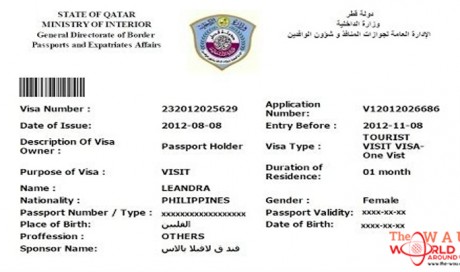Qatar declared it ‘abolished’ the Kafala system in December 2016, instituting a contract-based system in its place.
In the last few months, thousands of expatriates have attempted to change jobs, taking advantage of new regulations that stipulate workers don’t need their current employer’s permission to change jobs at the end of contract period.
Some expatriates who recently changed jobs told Migrant-Rights.org that the process is not as straightforward as promised. Due to fear of penalisation, their names are withheld.
Qatar, like the rest of the GCC, thrives on obtuse reforms and obfuscating even the laws it does manage to pass.
The Kafala system is abusive, denying workers mobility and trapping them in unfavourable working environments under the pretext of a contract. Under Kafala, migrant workers:
- Cannot change jobs without the explicit permission of ‘sponsor’ or ‘kafeel’
- Cannot leave the country without the permission of the ‘kafeel’
- Cannot terminate a job contract of his/her own will
- Cannot even process his own residency documents, a responsibility that’s left solely to the discretion of the sponsor. And when the sponsor defaults, the worker, not the sponsor, is criminalised
The much-touted abolishment of Kafala, as we have time and again pointed out, is only a rechristening of old, exploitative practices. It clings dearly to the practices that protect the interests of the citizen, blind to the rights of workers, denying them all justice.
So now, post-’reforms’ these are the hoops that expatriates have to jump through.
The Process
- First, a job offer letter/contract from the new employer must be submitted to the current employer to inform them of the intention to change jobs.
- Second, the current employer, in practice, must still provide a ‘no objection’ letter (see form) to the new employer.
- Then the official job change process begins. A police clearance must be obtained from the embassy of the worker’s country, attested by Qatar’s Ministry of Foreign Affairs.
- This must be submitted to the Criminal Evidences and Information Department (CEID) to get a security clearance along with attested educational certificates.
- Copies of Company Registration (CR) of the present and new employer.
A letter/contract from the new employer.
Copies of the resident permit and passport.
The ‘no objection’ letter template still mentions the word ‘Kafala’ in Arabic. It may well be an old template still in circulation, but that slip only reaffirms that old processes are alive and well.
Once a worker receives CEID clearance, the clearance must be submitted to the General Directorate of Passports (Immigration department) together with the job offer letter, educational certificates, CR copies of the present and new employers as well as the no objection letter from the present employer.
It must be noted that to acquire the original visa on first arrival, the worker would have gone through all of these processes. It seems rather wasteful that he or she has to do all of it again for a mere job change, placing a premium on a basic right.
Workers must also submit a form released by the Ministry of Administrative Development, Labour and Social Affairs (ADLSA).
Provided all of the submissions above are cleared, the visa change is approved and the expatriate is issued a new resident permit.
...[ Continue to next page ]
Share This Post












